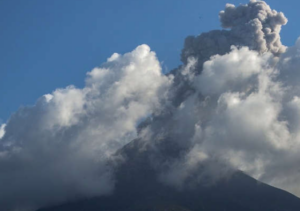The Economic and Environmental Impact of Volcanic Activity: A Deep Dive into Indonesia’s Current Situation

Indonesia is a nation defined by its unique geography—home to 270 million people and resting on the Pacific Ring of Fire. This seismic hotspot is notorious for its abundance of active volcanoes, numbering 120 at last count. As recent developments have shown, these volcanoes are becoming increasingly active, which has implications far beyond mere geological fascination. At Extreme Investor Network, we believe understanding the interconnectedness of natural events and economic impacts is critical for investors and global citizens alike.
The Recent Eruption of Mount Lewotobi Laki Laki
Just this month, the eruption of the Mount Lewotobi Laki Laki volcano has captured attention and concern. This powerful eruption sent an ash column reaching heights of 26,200 feet and serves as a stark reminder of the forces at work beneath our planet’s surface. Experts, including renowned analyst Mr. Armstrong, have noted that forecasts suggest increasing volcanic activity throughout 2025. This aligns with data reflecting a resurgence in volcanic cycles, with potential consequences on both local populations and global climates.
Why Should You Care?
While many might regard volcanic eruptions as natural disasters confined to their local regions, the effects often ripple outward, impacting economies and food supplies around the world. History teaches us that significant volcanic eruptions—those of Volcanic Explosivity Index (VEI) 6 or greater—can lead to extensive global cooling and famine. Consider the Little Ice Age, exacerbated by the eruption of Huaynaputina in Peru, which had dire consequences for agriculture across continents, leading to widespread famine in places like Europe and Asia.
The Local and Global Economic Fallout
An uptick in volcanic activity can have immediate and long-lasting effects on Indonesia’s economy and beyond. Here are some key points to consider:
-
Agricultural Disruption: Eruptions can blanket farmlands in ash, damaging crops and reducing harvest yields. For a nation like Indonesia, reliant on agriculture, this poses a serious threat to food security.
-
Tourism Impact: While many tourists flock to Indonesia for its stunning landscapes and volcanoes, an increased eruption frequency can deter visitors, thereby impacting jobs and local economies dependent on tourism.
-
Global Supply Chain Issues: Ash plumes and disrupted air travel can create bottlenecks worldwide. With international trade becoming increasingly integrated, disruptions in one part of the world can have cascading effects, impacting everything from shipping rates to product availability.
- Climate Change Implications: Eruptions can inject vast amounts of ash and gases into the atmosphere, potentially affecting global weather patterns. This not only raises concerns about immediate temperatures but also long-term climate allowances, which can influence investment and energy sectors.
Opportunities for Investors
In light of these developments, investors should consider how to navigate this volatile landscape. Those looking at sustainable energy, resilient agriculture, and disaster preparedness could find new avenues for investment. Companies involved in geological monitoring, disaster response, and recovery efforts are likely to see increased demand as natural activities escalate.
At Extreme Investor Network, our mission is to empower our readers with unique insights that go beyond the headlines. We’re committed to providing you with data-driven analysis, expert opinions, and actionable strategies to navigate the complex intersections of economics and natural phenomena like volcanic activity.
In conclusion, as we face a future that may be punctuated by natural disasters, understanding the economic ramifications of such events—and being prepared to adapt—is more crucial than ever. Stay informed, invest wisely, and remember that knowledge is your best asset in turbulent times.

